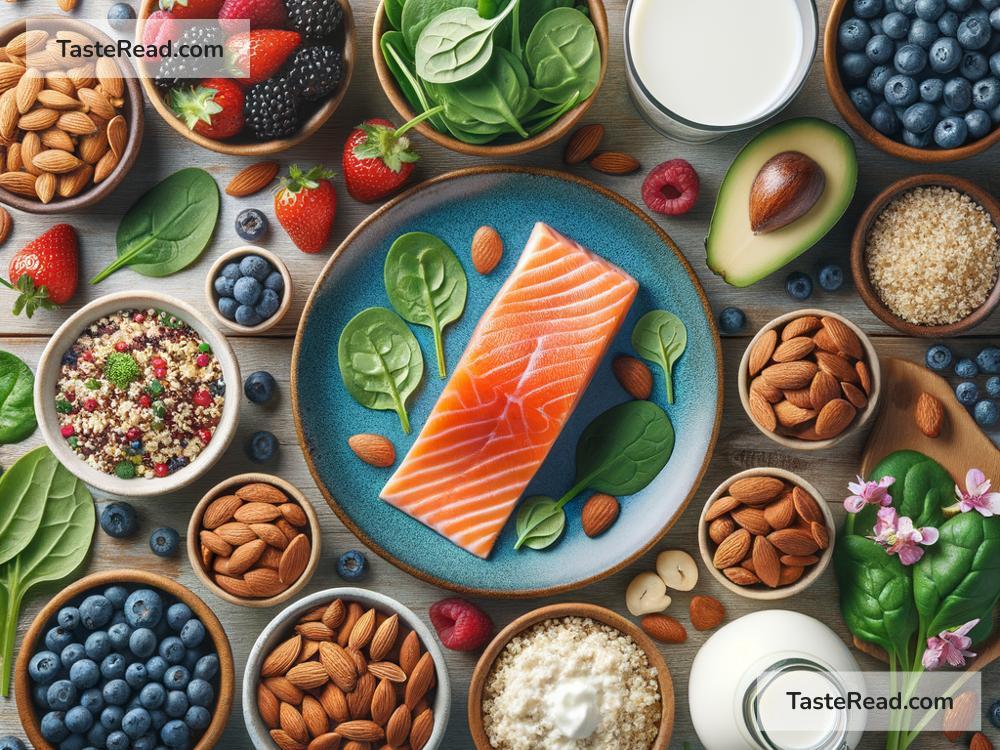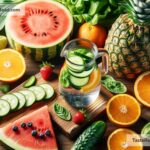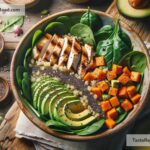Foods That Enhance Muscle Repair: Powering Your Recovery
When you engage in exercise, sports, or any physical activity, your muscles work hard. But sometimes, intense activity leads to tiny tears in your muscle fibers. This is a natural process that helps your muscles grow stronger and bigger—but only if you allow them to recover well. Nutrition plays a huge role in muscle repair. The foods you eat after exercise or strenuous activities can speed up recovery, reduce soreness, and help you perform better the next time around.
If you’re looking to maximize recovery and build stronger muscles, here are some top foods that help repair and replenish your body.
1. Protein-Rich Foods: The Building Blocks for Muscle Repair
Protein is the most important nutrient for muscle recovery. It provides your body with amino acids, which are the building blocks needed to repair damaged muscle tissue and build new muscle cells.
Best Protein Options:
- Chicken, turkey, and fish: Lean meats like chicken breast, turkey slices, and fish (such as salmon or tuna) are packed with high-quality protein.
- Eggs: Eggs are one of the best protein sources out there. They also contain leucine, an amino acid critical for muscle repair.
- Greek yogurt: Not only is Greek yogurt high in protein, but it also contains probiotics, which support gut health—important for effective nutrient absorption.
- Plant-based proteins: Beans, lentils, tofu, tempeh, and quinoa are great vegetarian options that supply your muscles with the protein they need.
Remember, protein should be a priority after workouts. Consuming 20–30 grams of protein within an hour after exercising can significantly boost muscle recovery.
2. Carbohydrates: Restoring Energy Stores
Carbohydrates often get a bad reputation, but they are essential for muscle repair. When you exercise, your body uses glycogen stores (energy reserves stored in your muscles). Eating carbs after exercise helps restore these stores and prepares your body for the next activity. Combining carbs with protein is especially effective for muscle recovery!
Best Carb Options:
- Whole grains: Oatmeal, brown rice, quinoa, and whole-wheat bread provide long-lasting energy and fiber.
- Sweet potatoes: A nutritional powerhouse, sweet potatoes are rich in healthy carbs, vitamins, and antioxidants that assist in recovery.
- Fruits: Bananas, berries, apples, and oranges offer healthy sugars and vitamins to replenish your body after activity.
- Starchy vegetables: Vegetables like carrots, corn, and peas contain essential carbs and nutrients.
3. Healthy Fats: Fighting Inflammation
Healthy fats are crucial for reducing inflammation caused by muscle damage. When your muscles are inflamed, they take longer to heal. Omega-3 fatty acids, in particular, are highly effective at calming inflammation and speeding up recovery.
Best Fat Options:
- Fatty fish: Salmon, mackerel, and sardines are excellent sources of omega-3s.
- Nuts and seeds: Almonds, walnuts, flaxseeds, chia seeds, and sunflower seeds are packed with healthy fats and protein.
- Avocados: Rich in monounsaturated fats, avocados help fight inflammation and aid in muscle repair.
- Olive oil: Use extra virgin olive oil as a healthy fat source for cooking or drizzling over salads.
4. Vitamin and Mineral-Rich Foods: Supporting Recovery
Certain vitamins and minerals play a direct role in muscle function and repair. Consuming foods rich in these nutrients promotes faster recovery and reduces muscle soreness.
Key Nutrients to Focus On:
- Vitamin C: Found in oranges, strawberries, spinach, bell peppers, and broccoli, vitamin C helps produce collagen, which repairs damaged tissues.
- Magnesium: Essential for relaxing muscles and avoiding cramps, magnesium is found in spinach, almonds, dark chocolate, and avocados.
- Potassium: Bananas, potatoes, and coconut water help balance electrolytes and reduce muscle aches.
- Zinc: Zinc supports tissue repair and can be found in pumpkin seeds, seafood, and legumes.
5. Antioxidants: Reducing Muscle Damage
After intense exercise, your muscles may experience oxidative stress (cell damage from free radicals). Antioxidants help combat this stress, encouraging faster recovery.
Best Antioxidant Foods:
- Berries: Blueberries, raspberries, and blackberries are bursting with antioxidants that counteract muscle damage.
- Dark leafy greens: Spinach, kale, and Swiss chard contain antioxidants and vitamins crucial for muscle recovery.
- Green tea: Drinking green tea provides your body with powerful anti-inflammatory properties.
6. Hydration: The Unsung Hero of Recovery
Water isn’t a “food,” but it’s just as essential for muscle repair as nutrient-packed meals. Dehydration can slow down the recovery process and make your body ache more. Make sure to rehydrate after exercise—especially if you’ve been sweating a lot.
You can also incorporate hydrating foods such as watermelon, cucumber, and coconut water into your diet. They replenish electrolytes and support hydration.
Final Thoughts
To give your muscles the care they need, focus on balanced meals packed with protein, carbs, healthy fats, vitamins, and minerals. Timing matters too—eating the right foods shortly after exercise enhances recovery and sets the stage for future strength gains.
Experiment with these muscle-repairing foods and find meals that suit your taste. With the right nutrition, you’ll recover faster, feel stronger, and be ready to tackle your next workout or adventure in no time!
What to Add to Your Post-Workout Meal:
– Grilled chicken breast with quinoa and steamed broccoli
– Scrambled eggs with avocado toast and berries
– Salmon with sweet potatoes and spinach
– A protein smoothie with Greek yogurt, banana, and chia seeds
Fuel up, eat smart, and let your body repair itself like the amazing machine it is!


